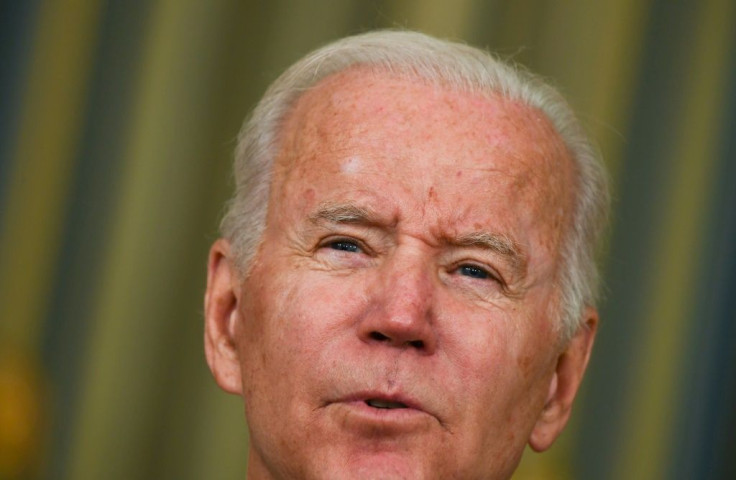Biden Hails Passage Of Infrastructure Plan As 'Monumental Step Forward'
US President Joe Biden on Saturday hailed congressional passage of his $1.2 trillion infrastructure plan as a "monumental step forward" after months of tough negotiations.
Speaking from the White House, he also insisted that both houses of Congress would pass an even bigger social spending package -- the "Build Back Better" plan -- despite infighting between the progressive and moderate wings of his Democratic Party.
The breakthrough on infrastructure, which gave the embattled president a much-needed win, came shortly before midnight Friday when House lawmakers finally approved a Senate-passed bill by a comfortable 228 votes to 206.
"I don't think it's an exaggeration to suggest that we took a monumental step forward as a nation" with that vote, said Biden, who appeared clearly energized by the resounding congressional victory.
He called the plan "a once-in-a-generation investment that's going to create millions of jobs," saying it would also put the country "on a path to win the economic competition of the 21st century that we face with China" and other countries.
Looking directly into the camera to address voters across the country -- many of them concerned about rising prices, Covid restrictions and bruising political division -- Biden said, "This bill is for you... a blue-collar blueprint to rebuild America."
Early Friday, passage was far from assured.
Despite hours of cajoling lawmakers, party leaders had risked seeing Biden's two-pronged legislative strategy -- linking the two big packages -- collapse as they failed to unite the party's feuding progressive and moderate factions.
The legacy-making vote Friday came at a pivotal time for Biden, as he faced plunging personal approval ratings and a humiliating upset defeat for his Democratic Party in the Virginia gubernatorial election.
His spokeswoman Jen Psaki said the success was "proof that delivering for the American people is worth all the painful sausage making."
"Clean drinking water for kids, broadband access, electric vehicles, biggest investment in public transit. It's happening. And more to come," she tweeted.
Party leaders in the House began the day Friday aiming to rubber-stamp the infrastructure bill -- the biggest upgrade of roads, railways, bridges and waterways in decades -- after first sending the even bigger Build Back Better deal, worth up to $1.85 trillion, to the upper chamber.

But six moderate Democrats refused to commit to the larger social benefits package, arguing they first needed to see a full accounting of its economic impacts, which won't be available for at least a week.
Speaker Nancy Pelosi was forced to postpone the Build Back Better vote, which includes major investments in health, education, tackling climate change and expanding social welfare programs.
Progressives initially blocked the infrastructure vote amid suspicion that Senate centrists would reject the Build Back Better bill as soon as they got their transport upgrades signed into law.
But Pelosi refused to back down, insisting on the vote before the end of the day and offering an olive branch to the liberals -- a procedural vote to at least get debate started on Build Back Better.
While several progressives voted no on the infrastructure bill, Democrats were able to secure 13 Republican votes.
US business and industry groups warmly welcomed passage of the infrastructure plan, with the US Chamber of Commerce calling it "a major win for America."
Biden is banking on a bounce from the vote, 10 months after he swept to the White House promising the pandemic-devastated nation he would "build back better" -- only to see his popularity plunge.
But it remains unclear whether the benefits of the package will kick in soon enough, and visibly enough, to boost Democrats in next year's midterm elections, particularly after the deeply divisive and drawn-out maneuvering that preceded it.
"It was ugly," Republican pollster Neil Newhouse told CNN on Saturday. He said passage likely came too late to help Democrats in 2022.
Build Back Better is likely to be downsized significantly in the Senate, even if it advances from the House.
"It will not be enacted as is. Everybody needs to sit with that and get comfortable with it," Montana's democratic senator Jon Tester told Politico.
The votes capped months of tense negotiations on Capitol Hill.
The Senate approved the infrastructure package in August, but most House Republicans withheld support after former president Donald Trump threatened reprisals for helping to hand Biden a political win.
© Copyright AFP 2024. All rights reserved.





















